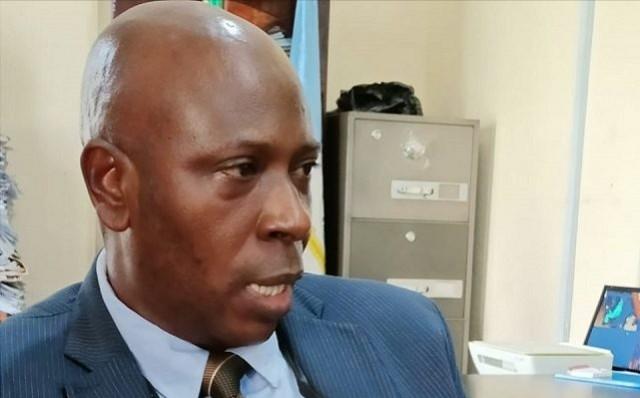
Prof. Emmanuel Ufuophu-Biri is the Rector, Delta State Polytechnic, Otefe-Oghara. In this interview with OWEDE AGBAJILEKE, the Professor of Mass Communication and Journalism speaks on underage admission into tertiary institutions, the students’ loan programme of the Federal Government, brain drain in the education sector and other issues confronting the sector.
How would you describe the outcome of the 2024 JAMB Policy Meeting?
Summarily, the outcome was very successful; beautiful because it is what I can call an outcome of a democratic process because every participant was allowed an opportunity to partake in the meeting. So, it was not just decisions coming from JAMB or the Federal Ministry of Education. These are resolutions from fallouts of the collectivity of JAMB, the Federal Ministry of Education, Vice-Chancellors, Rectors, Provosts and other principal officers who accompanied them.
A vice-chancellor raised the issue of underage admission; it was well debated and reasons were adduced to it. The policy can’t be retroactive. Before the decision came up, people had subscribed to JAMB and some of them fell below the age of 18. So, it was just unjust to them. And I thank God the JAMB Registrar saw reasons and systematically, tactically and wisely put it before the Minister of Education who also accepted it. There were diverse views. The views, both vocal and body language of the heads of institutions and other administrative heads, is that the minimum age should be 16 and not 18.
Some have argued that pegging it at 18 years from next year is unfair to brilliant chaps who could excel in institutions of higher learning, as seen in other climes. Do you see the government rescinding the decision?
Well, in the educational sector, we are very diplomatic. Like the way it was handled at the JAMB Policy Meeting, we are diplomatic and democratic. We try to organise rather than antagonise. You saw the way it was brought down to 16 years for now. I think stakeholders – the Committee of Vice-Chancellors, Committee on Rectors and Provosts, if they are so interested, may do something. It’s all about discussion. At the end of it, reasons will prevail; facts will prevail, data will prevail, truth will prevail.
It is not something I can give my personal opinion. If I have to give my personal opinion, I will be drawing inferences from global outlook. But people who have reasons, just like what happened at the meeting, will begin to push. And I think if interested parties, parents, National Association of Nigerian Students (NANS), administrators of other higher institutions and other stakeholders, for instance, see reasons other than 18 years, they may engage the government. And if the government sees superior argument, why not?
You saw the level of democracy at the meeting where the voices of ‘let it be 16 years for now’ were louder than that of 18 years. Democracy prevailed. Vox populi, vox dei. So, it’s a continuous process. Nothing is static. With constructive engagement, things may work the way the majority want them to work.
How would you react to the students’ loan programme where there seems to be apathy in the south than in northern Nigeria?
Well, I had a sideline discussion with the Managing Director of the Nigerian Education Loan Fund (NELFUND) and President of National Association of Nigerian Students (NANS). I saw in them the genuine pursuit and intention for the Nigerian students to gain from this loan. In the first place, this is what we read of in other climes. When the mobile phone was first introduced into our country, there was apathy. There is this initial phobia towards some innovation. We call it innovation diffusion. From what the NELFUND MD said, there could be apathy, disbelief in some quarters. When I spoke with the NANS President, we spoke about enlightenment, orientation to potential beneficiaries. It has just come; it’s a new programme. There are early and late adopters. It’s always like that. When a new product comes into market, there are those who would adapt to it so quickly. There are others who would want to observe it. When you watch the lions crossing water, they cross it with caution. There are those who want to cross immediately and those who will want to study it first. It’s normal. I do believe that subsequently it will be massive.
However, from what I have come to see and know of loans outside this country, student loans are not general. You can’t have somebody whose father is a billionaire applying for such a loan. I wish it should be limited to some extent to people who are relatively disadvantaged to be able to pay. If you enter some buses in the United Kingdom, they will say ‘Please, give up these seats for those who are less able than you to sit’. I can’t see somebody whose father is riding a Bugatti, whose father is living in a mansion, whose parents fly Business Class competing for that loan with the downtrodden. You don’t take a loan for what you have money to do. But how you can work out that criterion is what I don’t know. But as time goes on, it should actually be for students who are less able than others to pay their fees. As it is right now, it is general. The heads of institutions, NANS and SUGs in different institutions should encourage students to subscribe to it.
We must also commend the initiators of the loan scheme, believing that there will be total sincerity in it. It will alleviate a lot of difficulties in scholarship. And the monthly stipend for the students is a great thing. But what I want to advise is that criteria should be worked out. Let’s look at the socio-economic backgrounds of the parents. But if the government has the money to meet up with all students that applied, so be it.
Do you subscribe to calls in some quarters that it should be a grant and not a loan?
I am a comrade with objectivity. If it’s a grant, then education becomes totally free. If that is what the government will do for the students let it be. We will clap for the government. But if that has to be done, then when the child graduates, he should think of what to do for his nation because such offers are not common. I think in Germany, for postgraduate studies, there is no tuition. But I don’t think to the best of my limited knowledge of countries there are places where tertiary education is totally free. But if Nigeria wants to start it, then we become models for other countries. If NANS and other stakeholders have called for that and they can substantiate it and they are able to convince the government, why not? There is a saying in Urhobo where I come from that nobody puts sugar in his mouth and spits it.
At the inauguration of governing councils of tertiary institutions, the Minister of Education lamented that more lecturers have sought for greener pastures abroad than medical doctors. What should the government do to address the issue of Japa syndrome by lecturers?
Water finds its level. The cricket does not perch on mud; it perches on white sand. The ant doesn’t perch on bitter leaves; it goes to where there is sugar. When you leave your village to your state capital, you are looking for greener pastures. When you leave your state to Abuja, you are looking for greener pastures. Japa is a global thing. When you go to the creeks of the Niger Delta, you see white people working there. That’s Japa. When you go to the forests of northern Nigeria, you see white people mining. That’s Japa. When you go to big towns, you see towns populated by the Chinese, that’s Japa. The same thing with Indians, Filipinos.
Japa is not a new phenomenon. But it becomes dangerous when your best hands begin to go because you could not satisfy them. Look at this year’s European Cup of Nations. One of the matches played by the French team, nine are Blacks. The English team, two of the wonderful players: Saka and Ezeh are Nigerians. The Spanish team, two of them are Blacks. The Netherlands team, one is Nigerian. If they were to be here, would they have made the first 30? So, you look for greener pastures. When there were so many white people teaching in our primary, secondary schools and universities, were Nigerian lecturers running away the way they are running right now? In 2009/2010 when the Nigerian professor’s salary was about $3,500 to $4,000 was he running away? So, if he has an offer that is five times his salary outside this country, will you stop him from going? There is what we call positive and negative geotropism. When the tree grows up, it gets gravity.
That is negative geotropism. When it grows down, it is called positive geotropism. The tree must have its roots strong otherwise the storm will make it fall. In essence, you must have a strong root. You must first of all solidify yourself economically and socially, if not you fall. It’s not just being named a professor, medical doctor, journalist but above all, what do you have? It’s a global world. The person who just left as British Prime Minister is of Indian origin. There was a time in Britain when the head of the Central Bank was from Canada. If you go to South Africa right now, you will see a lot of deans and heads of departments that are Nigerians and Zimbabweans. So, this issue of Japa doesn’t come into play. If your country offers what is good, it will attract others to you.
We have the oil sector here. You have the white guys coming because they earn so much from it. If you make the education, health sectors attractive, they will also come. It’s a force of gravity. When people get better offers, they go there. So many Nigerian lecturers are getting better offers, hence they are going there. If you feel it is bad, give a good offer and let others also come to you. We have the very best of brains in Nigeria. But for me, nobody’s navel is tied to a particular country. You go to where you think is best for you. It’s like a football match. If today Ronaldo is playing for one team and another team is bringing another tempting offer, he will go for it. But if you think there is a kind of loss, you up your offer where you will attract others.





